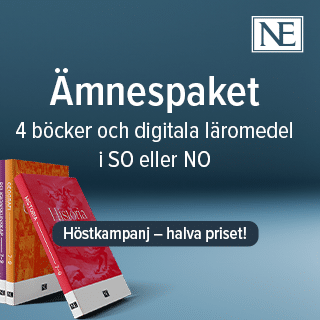Villkor för lärande – Utbildning på språkintroduktionsprogrammet ur lärar- och elevperspektiv
Erika Bomström Aho har i sin avhandling undersökt och problematiserat de villkor för lärande som erbjuds för nyanlända ungdomar på Språkintroduktion.
Erika Bomström Aho
Åsa Wedin, Högskolan Dalarna Christine Cox Eriksson, Högskolan Dalarna Jenny Rosén, Högskolan Dalarna
Docent Stig-Börje Asplund, Karlstad universitet
Åbo Akademi
2023-09-08
Villkor för lärande – Utbildning på språkintroduktionsprogrammet ur lärar- och elevperspektiv
Abstract in English
Using the third space theory, the overall aim of this thesis is to study and problematize conditions for learning which are provided for newly arrived students in the Language Introduction Program in upper secondary school. By highlighting factors that affect these students’ education in four sub-studies, the study contributes in-depth knowledge about the Language Introduction Program. The program is one of five introductory programs in Swedish upper secondary school that admits newly arrived students from the ages of 16 to 19.
The thesis adopts an ethnographically inspired approach and consists of four qualitative sub-studies that highlight factors and issues that affect the education of students in the program. The data consist of observations of lessons in five different subjects, interviews with teachers and students, and assessment material that looks at the prior knowledge and experiences of students. The theoretical framework of the thesis is Bhabha’s third space theory, which is employed for the analysis of the results and conclusions.
The findings indicate that knowledge in Swedish and knowledge learned in Swedish schools is highly valued by the teachers. What teachers and students say demonstrates that knowledge of Swedish is perceived as key to employment and a place within society. The results also show that some school knowledge gained earlier by students, in addition to knowledge acquired in Swedish schools, is more highly valued and made visible in a different way than the knowledge gained in other ways. The findings also indicate that what teachers say about knowledge in relation to Language Introduction students positions the students as students not knowing Swedish, or as some of the participating teachers put it, students who do not ”have the language”, indicating specifically Swedish. The students themselves talk about how they lack Swedish and how they must learn Swedish, which corresponds then with what the teachers say. Furthermore, the results show that some teachers use the term ”students without background” to refer to students with little or no experience of formal schooling. This makes knowledge gained through formal schooling visible, and knowledge gained in other ways by students ”without background” invisible.
A conclusion that can be drawn from this thesis is that the students at Language Introduction are stereotyped as students with different knowledge than expected, that the education on the program is not based on the students’ conditions and that their opportunities for learning are therefore not equivalent to those of students in other programs in Swedish schools.
Relaterade länkar

Fritidshem
 Åk F–6
Åk F–6 Matematikångest
 Åk 4–Vux
Åk 4–Vux 






